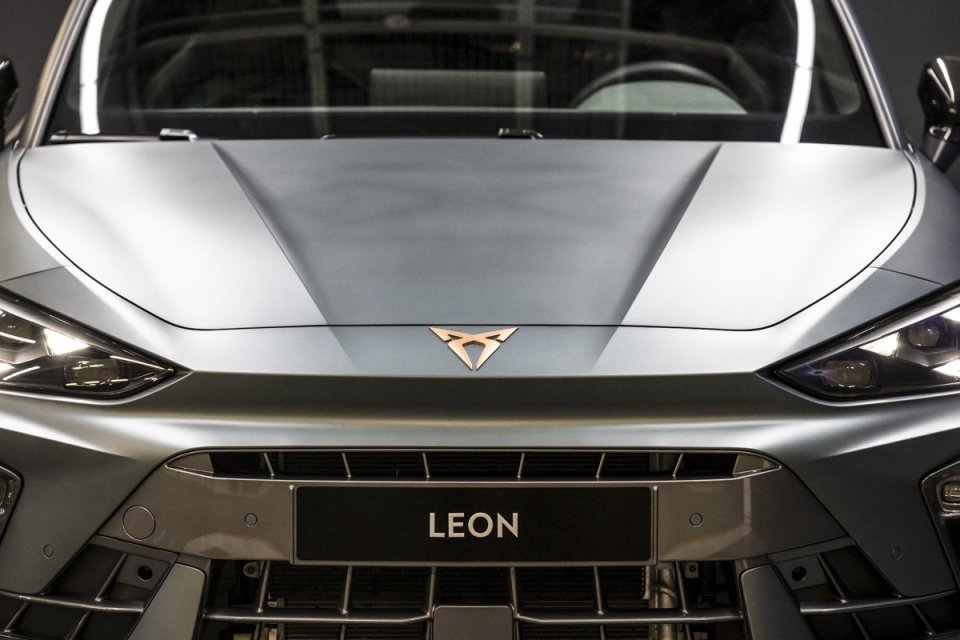Volkswagen-owned brand coming to US for the first time as drivers praise ‘best-looking cars under $60k’
A Volkswagen-owned car that is well-liked in Europe has declared its intention to join the US auto industry.
SEAT’s sports car, the Cupra, which was acquired by Volkswagen in 1986, is expected to have a significant impact on the US market by 2030.
The SEAT Ibiza type was well-known in the 1990s for its compact hatchback styling that was reminiscent of Volkswagen’s recognizable Beetle.
However, when racers started using Ibizas in World Rally Championship events, SEAT made the decision to redesign the model into a sportier, more aggressive race design.
In 2018, SEAT launched the Cupra model as a stand-alone brand, aiming to appeal to young drivers as a stylish, lifestyle car.
Cupra debuted its first battery-operated variant in 2021.
Read more in The U.S. Sun
The Cupra has rapidly become as one of the most fashionable cars available in the six years since its initial release.
The company has bases in Mexico, Turkey, and Australia as part of its international expansion.
In 2023, Cupra sold roughly 250,000 vehicles.
Cupra now plans to join the cutthroat US auto industry in the upcoming years.
According to Cupra CEO Wayne Griffiths, the fleet coming to the US would include at least two of its electric vehicles.
According to Clean Technica, one would be an electric variant of the Forementor, a small crossover that is connected to the Volkswagen Tiguan.
Tesla-killing electric CUPRA DarkRebel car holds a secret design trick to increase speed
The second is a brand-new, big SUV that will be produced in North America.
The announcement that the automobiles would be arriving in the United States was welcomed by fans of the Cupra’s sleek performance vehicle.
“Hopefully, Cupra will visit the United States. One auto aficionado commented, “They have the best-looking cars for a public below 60[,000].”
“The buzz is offering something different to everything on sale,” a different individual stated.
EV UNCERTAINTY
At a time when the electric vehicle revolution is having difficulty taking off in the US, Cupra intends to enter the market.
In China, EV sales are booming, but in the US and Europe, they are faltering.
Since 2022, EV prices in the US have decreased dramatically.
Even still, the average cost of an EV vehicle is still high; as of October, a new one would set a prospective owner back close to $57,000.
The pricing is more than the typical non-EV starting price of $48,000.
Automakers that produce electric vehicles, like Nissan, Ford, Rivian, and Kia, have been beset with uncertainty.
Nissan sold 1.59 cars worldwide in the first half of the fiscal year, a 3.8% decrease.
Read More on The US Sun
Nissan’s president and CEO, Makoto Uchida, acknowledged that his firm lacked the plug-in hybrid and hybrid lineup required to compete in the EV market.
The Japanese manufacturer intends to promote the launch of plug-in hybrids and e-POWER automobiles in the US and new energy vehicles in China.
Electric vehicles vs gas

Pros and cons of electric automobiles versus those that run on gasoline
EV Advantages:
- Convenient (when charging at home)
- Cheaper (depending on state or city)
- Cheaper maintenance, due to lack of mechanical parts
- Great for commuting
- Reduced CO2 emissions
- Federal and state tax incentives
- More performance (speed, handling – depending on the make and model)
EV drawbacks
- Higher initial cost
- Higher insurance rates
- More frequent tire and brake replacement intervals
- Higher curb weight (thus causing more rapid wear on crucial parts)
- Low resale value
- High depreciation rates
- Lack of charging infrastructure
- Unreliable public charging (related: slow charging times)
- Poor winter and summer performance
- Lack of clean energy alternatives means more “dirty energy” from coal and nuclear sources
- Range anxiety
PROS OF GAS:
- Highly developed refueling infrastructure
- Fast refueling
- Cheaper insurance rates, depending on make, model, and configuration
- Established repair industry
- Lower initial cost
- Higher range before refueling, especially with hybrids
- Many manufacturers produce nearly emission-less engines
- Cheaper refueling, depending on the location
CONS OF GAS:
- Finite resource (related: heavy dependence on petroleum)
- Carbon emissions/greenhouse gases
- Higher repair costs
- Higher insurance rates, depending on make, model, and configuration
- Varying costs at the pump, depending on state, city, and county
Source: Perch Energy, AutoWeek, Car & Driver
Note: Every piece of content is rigorously reviewed by our team of experienced writers and editors to ensure its accuracy. Our writers use credible sources and adhere to strict fact-checking protocols to verify all claims and data before publication. If an error is identified, we promptly correct it and strive for transparency in all updates, feel free to reach out to us via email. We appreciate your trust and support!














